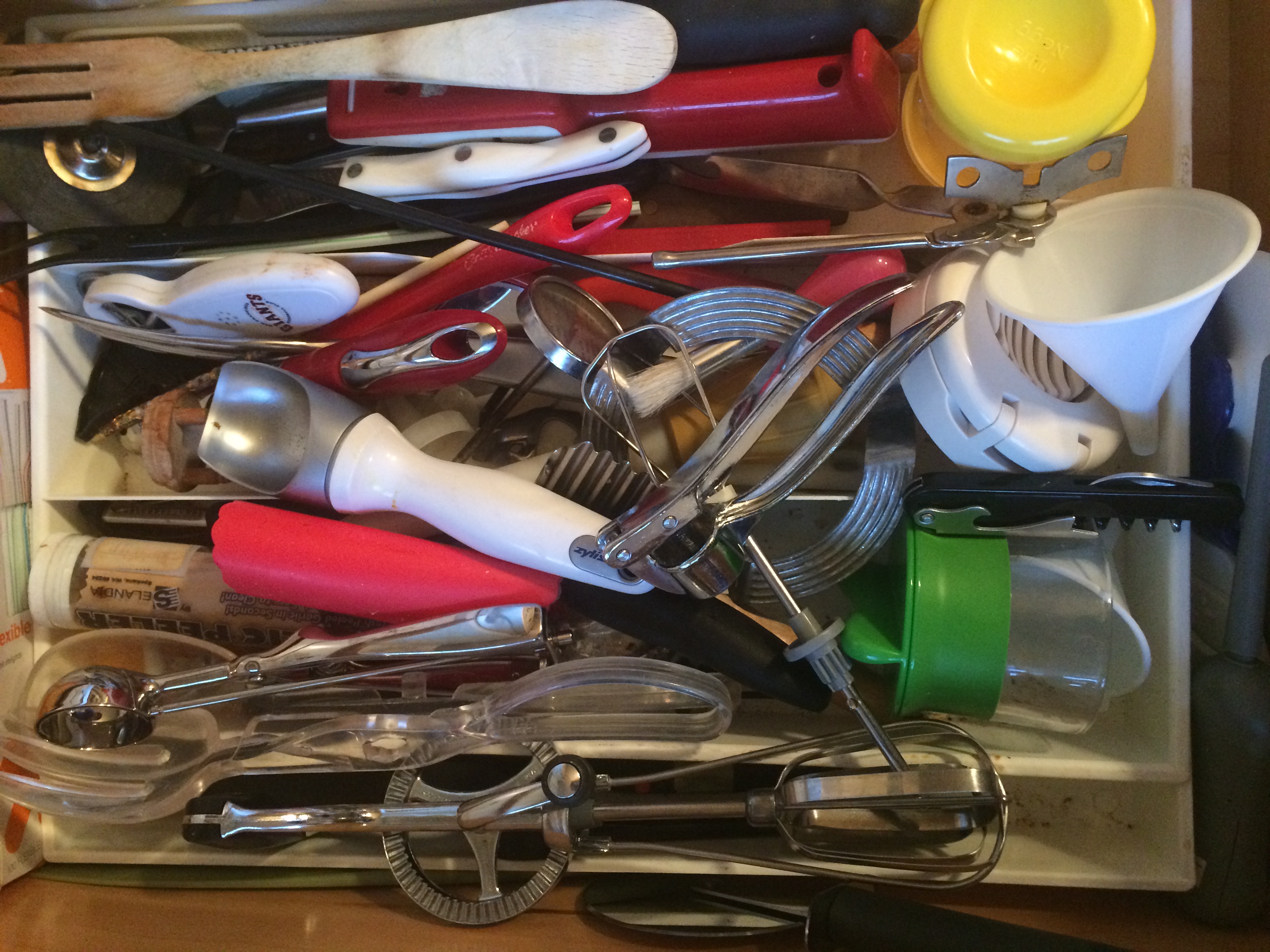 A few years ago Marie Kondo’s book “The Life Changing Magic of Tidying Up” became a huge hit, inspiring readers around the world to simplify and declutter their homes. Her mantra is “spark joy”— she urges people to purge their possessions and keep only those things which give them joy. Continue reading
A few years ago Marie Kondo’s book “The Life Changing Magic of Tidying Up” became a huge hit, inspiring readers around the world to simplify and declutter their homes. Her mantra is “spark joy”— she urges people to purge their possessions and keep only those things which give them joy. Continue reading
Thoughts on a changing Christmas
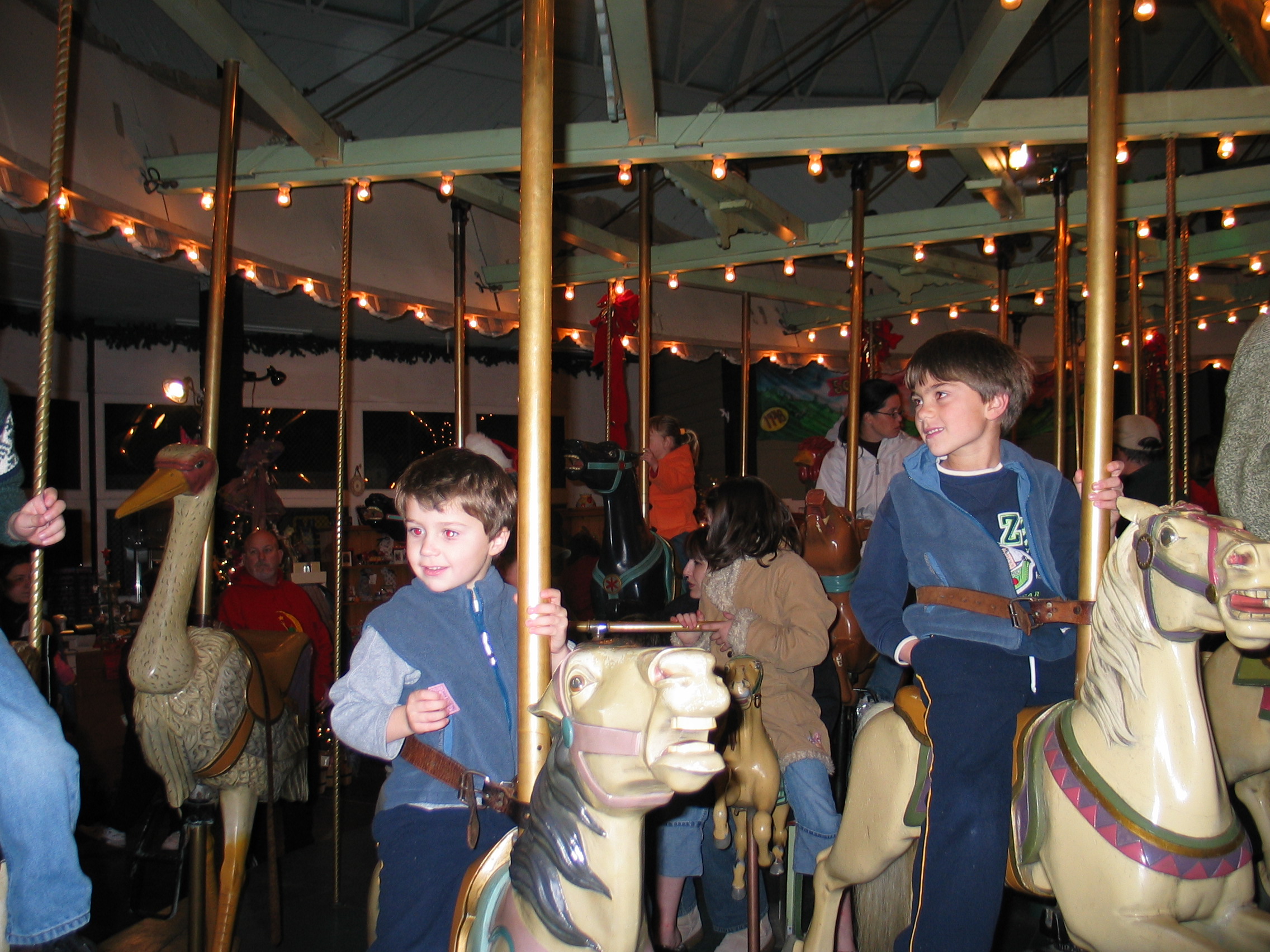 I am a mother on the cusp of change. My youngest son will leave for college next year. And this holiday season the familiar signs of Christmas—the sparkling lights, the ornaments on the tree and the special sweets—reminded me that as much as life stays the same, it doesn’t stand still. Continue reading
I am a mother on the cusp of change. My youngest son will leave for college next year. And this holiday season the familiar signs of Christmas—the sparkling lights, the ornaments on the tree and the special sweets—reminded me that as much as life stays the same, it doesn’t stand still. Continue reading
The healing power of play
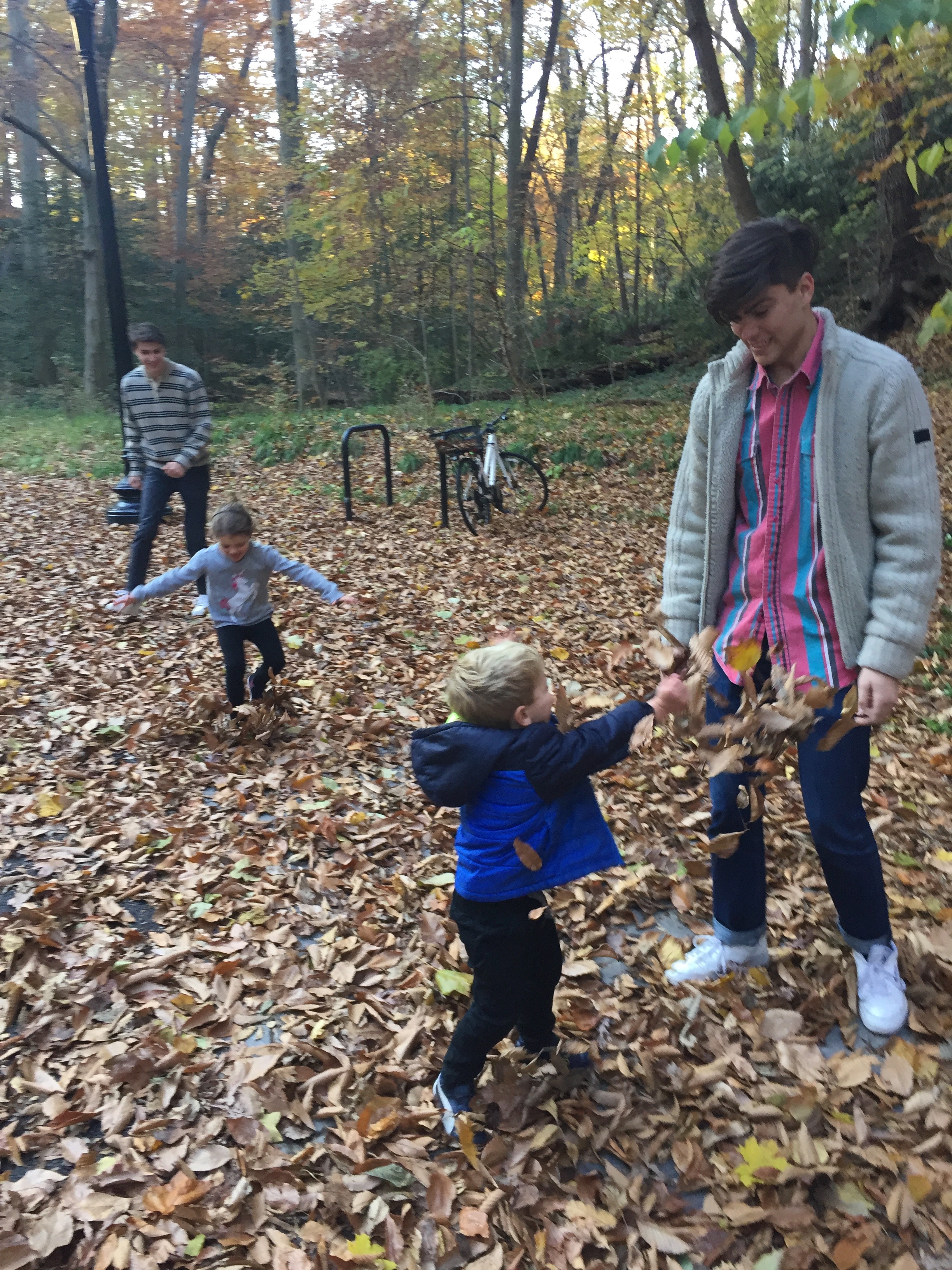
Play. For kids it comes easily. But for adults it’s not something we do that often. When was the last time you played a game, acted in a skit or picked up some crayons?
It had been a long time since I had done any of these things—until I attended a contemplative retreat a few months ago. But that’s exactly what we did at the retreat. We played, we laughed, we relaxed—and something sacred happened. Continue reading
Sam’s story, Part 3
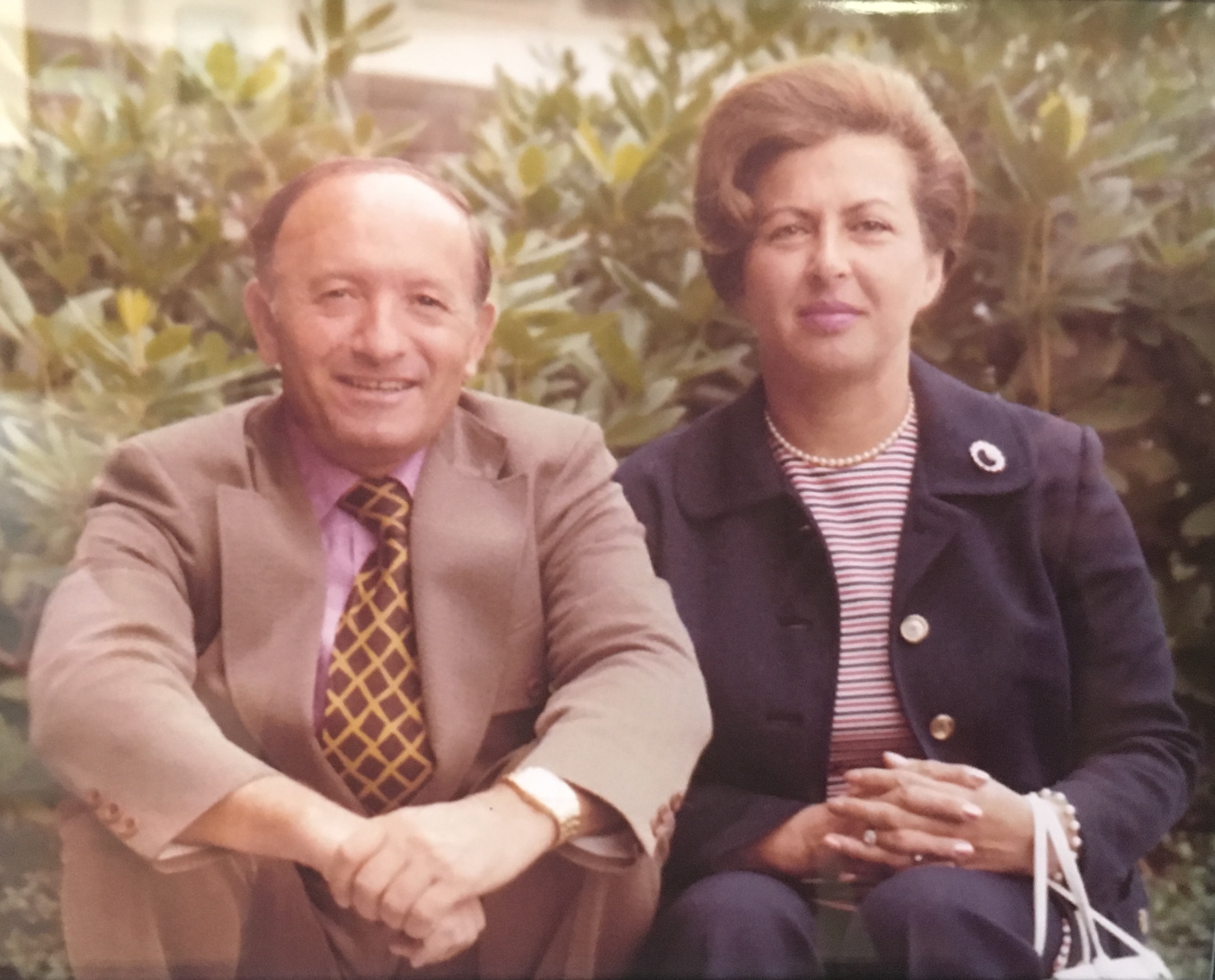 In many ways Sam Genirberg has the model American immigrant story. He came to the U.S. in 1948 with $50, earned $1.25 an hour at his first job in a warehouse and eventually started several successful businesses. He ran Moo’s, a popular ice cream parlor in Richmond, and then launched a real estate business, which he still manages today. Continue reading
In many ways Sam Genirberg has the model American immigrant story. He came to the U.S. in 1948 with $50, earned $1.25 an hour at his first job in a warehouse and eventually started several successful businesses. He ran Moo’s, a popular ice cream parlor in Richmond, and then launched a real estate business, which he still manages today. Continue reading
Sam’s story: Part 2

Sam Genirberg has the distinction of being one of last living survivors of the Holocaust, or Shoah, as he prefers to call it. At age 94 he spends most of his days quietly in his El Cerrito house, filled with pictures of his family, including his wife, Rose, who passed away five years ago. She was also a survivor, having endured Auschwitz and Bergen-Belsen. Continue reading
Sam’s story, Part 1

Sam Genirberg was a 17-year-old high school student when German troops invaded his home country, the Ukraine, in 1941. Little did he know that within a few months, the 12,000 Jews in his small town would be taken from the their homes and forced to live in a ghetto. Soon after they would be marched to pits outside of town and brutally murdered, part of the Nazi extermination of Jews. Continue reading
The Goodbye Year
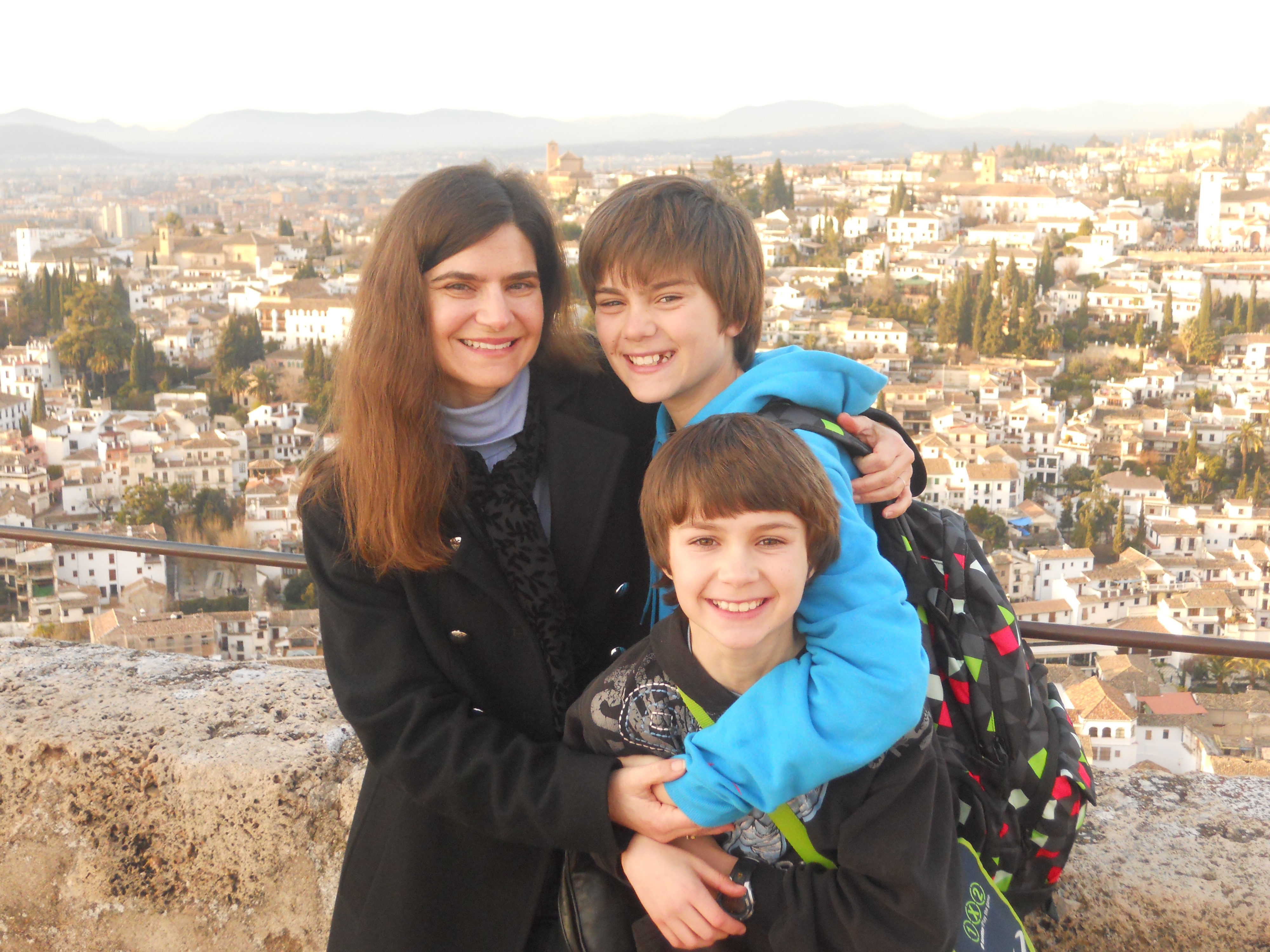
Two weeks ago my younger son started his last year of high school. It’s hard to believe that at this time next year he’ll likely be off to college and our house will be an empty nest. My husband and I have spent the last 20 years nurturing and caring for our kids and in the blink of an eye, they’ll be gone. Continue reading
Word by word with my writing coach
 I didn’t think working with a writing coach would be all that challenging. I thought I’d get inside tips on where to submit, general writing advice and editing that would garner quick results—lots of published pieces. How hard can this be?, I thought. I’ve been writing a blog for several years and I feel ready to put my work out there to other publications. Continue reading
I didn’t think working with a writing coach would be all that challenging. I thought I’d get inside tips on where to submit, general writing advice and editing that would garner quick results—lots of published pieces. How hard can this be?, I thought. I’ve been writing a blog for several years and I feel ready to put my work out there to other publications. Continue reading
Hitting a deer and other close encounters with the wild
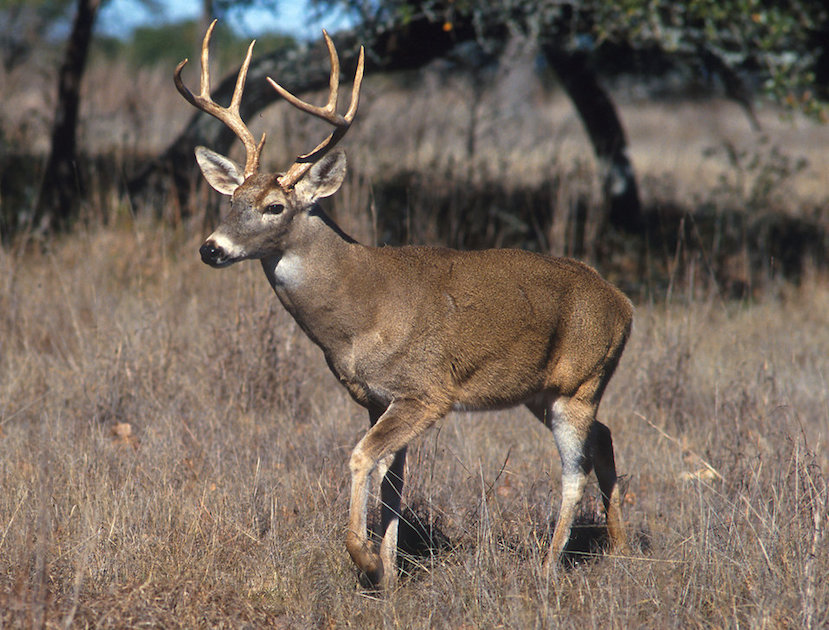 Maybe, just maybe we wouldn’t have hit the deer if I hadn’t showed my husband the cool old hotel where I sometimes stay in Santa Rosa. If not for that 2-minute detour on our way home we may not have collided with the buck a half-hour later at 70 mph on the freeway.
Maybe, just maybe we wouldn’t have hit the deer if I hadn’t showed my husband the cool old hotel where I sometimes stay in Santa Rosa. If not for that 2-minute detour on our way home we may not have collided with the buck a half-hour later at 70 mph on the freeway.
The deer came out of nowhere. We were talking one minute, in the quiet bubble of my husband’s sleek grey Subaru. Then suddenly we saw the deer’s head, topped by impressive antlers, off to one side of our windshield. Our eyes locked for a split second. What was he doing there in the fast lane of the freeway? He was probably thinking the same thing as us.
The impact was swift. A loud couple of thuds reverberated against the front and side of the car as the deer’s body smashed against us. My husband instinctively veered to the right and pulled over to the shoulder of the highway. Fortunately, no other cars were around us at 10 pm. that night.
The car was badly damaged. Later our insurance would pay $10,000 to repair it. The deer didn’t survive. A highway patrol officer who pulled over told us he was lying in the median. We were practically in tears. “If I hadn’t showed you the hotel…” I said. “Or if we hadn’t spent five minutes talking in the car before we left…” We had just killed a living, breathing being.
On the way home we asked the tow truck driver if he sees many accidents like this. Yes, he said. Deers are nocturnal. I felt like I had just woken up from a dream, sitting high up in the middle seat of the tow truck between my husband and the driver.
I asked the driver about himself, just to get my mind off the deer. “Where are you from?” He told me he was from Petaluma and had recently returned from a tour of duty in Iraq. “Thank you for your service,” my husband said. But the driver said nothing and kept talking. Living in the Bay Area was getting too expensive, he said. He planned to get a job as a guard at a correctional facility somewhere up north.
The driver didn’t have to, but he towed our car all the way home to Berkeley. “It’s a quiet night,” he said.
**
When I was a child, I had recurring dreams of entering the “deer cave” down the hill from our house. My brother and I had discovered that the deer had a sort of cave under a bunch of trees and bushes at the bottom of our property. The cave was always dark even when it was sunny and bright outside. You could tell the deer slept there by the matted circles of grass on the ground. I only looked in once and I was afraid to get near it again.
In my dream I would be playing in the yard and then get closer and closer to the cave. I would peer inside and all kinds of fearful things would be waiting for me. Not just deer, but other things I can’t now remember. I would wake up in a sweat. My fear wasn’t irrational. Once a deer had kicked my dog in the face and knocked two teeth out. I had a respect for these silent, mysterious creatures that roamed the hills.
**
Running into the deer south of Santa Rosa wasn’t the first time I’ve hit a deer. When I was 19 years old I was driving to my family’s house when a deer suddenly jumped out of the bushes on top of my car. He smashed the windshield, got stuck in the ski rack for a moment, twisting the metal, and then ran off into a neighbor’s yard. In a daze, I drove the next block home, tiny shards of glass speckling my face. When my mom came out to say hi, she gasped at the sight.
I had been returning from a pre-marital counseling session with my pastor and my soon-to-be husband. I have no recall of anything we talked about in that meeting or really any other meeting we had, but I’ll always remember the deer. I wondered if the deer had been OK. I was glad for the safety glass on my car. Every time I saw the twisted ski rack on top of the car I remembered the collision I had with something wild.
**
Some years ago a friend asked me if I had a spirit animal. I had never heard of this and didn’t even know what it meant, but I immediately responded: a deer. Maybe I am even a little like a deer. I tend to be quiet, an observer. I like to wander around hills. At night my brain is busy. I often remember my dreams and ruminate on them for days afterward.
Actually, my friend later explained, a spirit animal is more like a guide. I’ve thought about this a lot over the years. In every encounter, deer—seemingly benign and gentle—have jolted me awake in some way. That time on the highway with my husband renewed our thankfulness for life, even as we grieved for the deer. When I ran into the deer when I was 19 it created a bonding moment with my mom. I could have walked down the aisle with a face full of scars but I didn’t.
Even my current battle with the urban deer in my neighborhood gives me some sense of adventure. In May I started spraying a concoction of garlic, cayenne pepper, eggs and water on the agapantha flowers in my front yard. These plants are supposed to be deer repellent, but the hungry deer around here eat them anyway. As soon as fat buds form at the end of each long stalk each spring, the deer nibble them off. I haven’t seen them bloom into big purple flowers for at least five years.
This year I decided to fight back and the spray worked. I felt slightly bad I ruined these plants for the deer but I also felt a little excited each morning when I found the buds still intact. Now all of the agapanthas are in full, bountiful bloom.
I haven’t seen any deer in my neighborhood for a while but two nights ago my son saw three coyotes in our yard. That both intrigued and worried me. They must be following the deer who come down from the hills. I won’t let my little dog out at night anymore.
We think we live in a controlled, tame environment, but nature—wild, fighting to survive, beautiful and fearsome—is just outside our door. How we react to these messengers from another world can teach us a lot about ourselves.
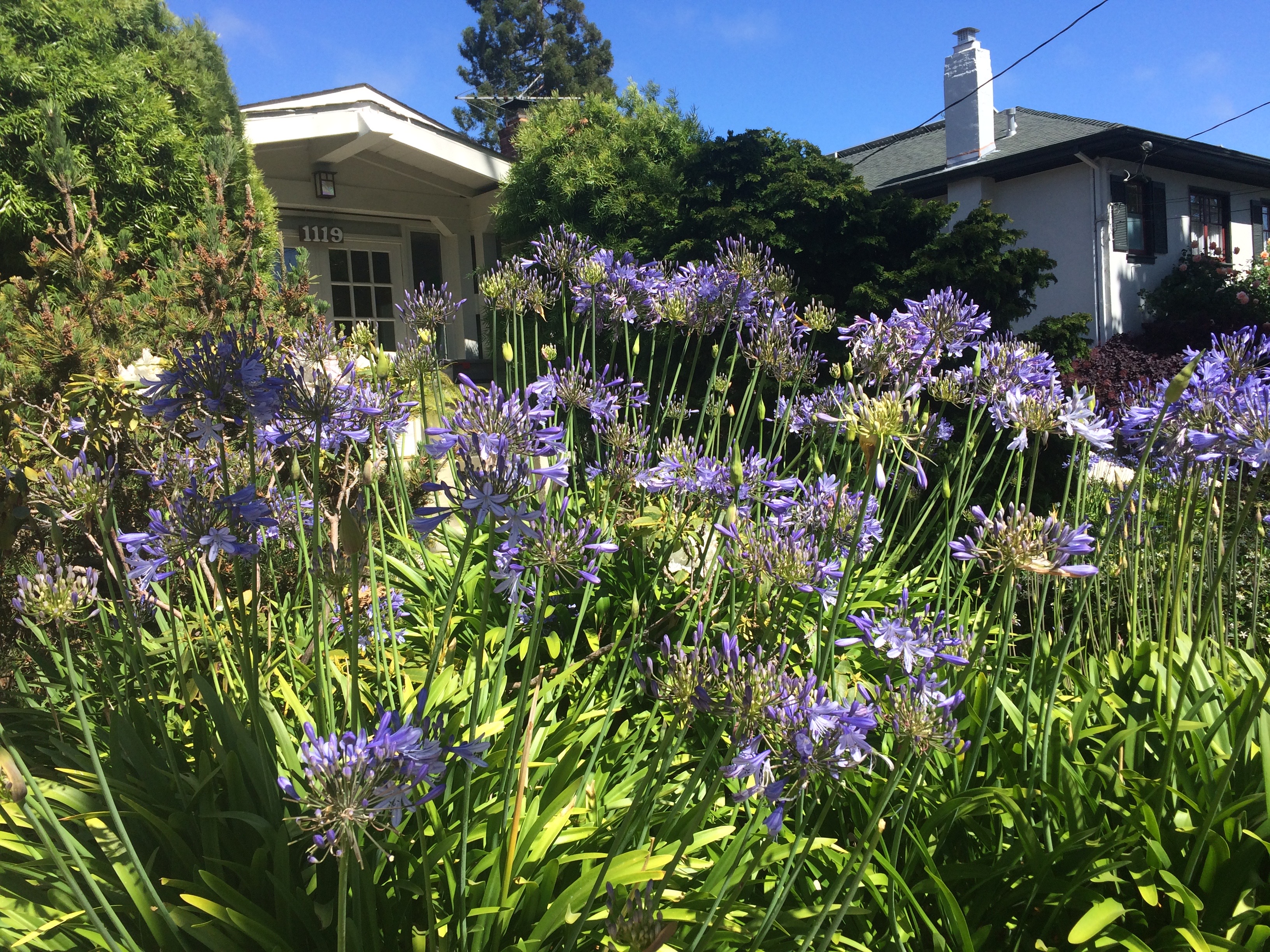
The day my sister entered my life
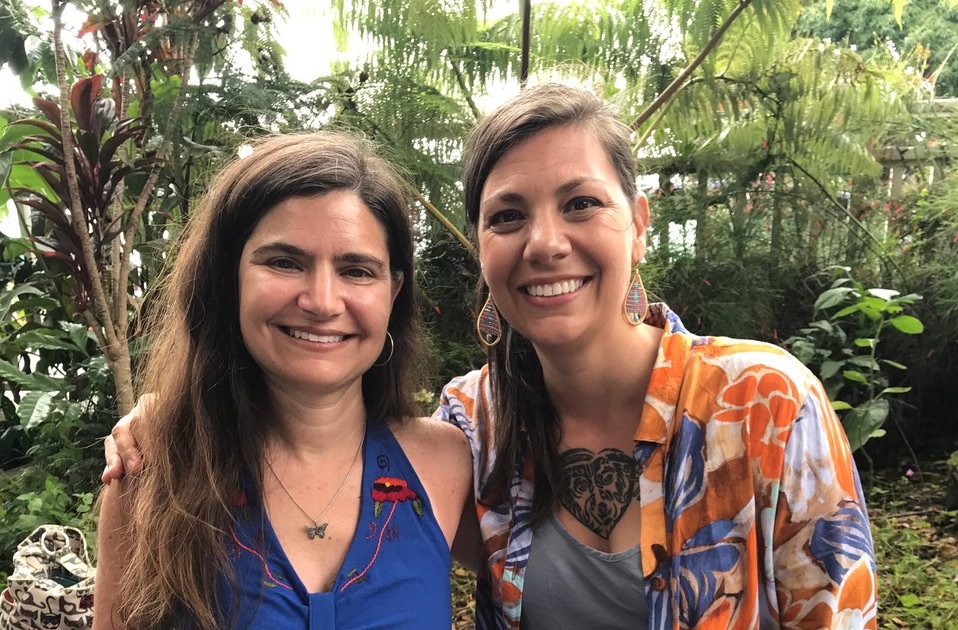 “Aloha, it’s so great to meet you,” Regina said as I stepped off the runway in sunny Kona. Hawaii.
“Aloha, it’s so great to meet you,” Regina said as I stepped off the runway in sunny Kona. Hawaii.
We gave each other a hug.
“It’s nice to meet you too, after all this time,” I said.
I had been anticipating this moment for 20 years. That’s when I first found out that I had a half-sister. I had been adopted as a baby and had never known anything about my birthparents or siblings until I turned 30. At that time my birthparents, who had gone separate ways, each contacted me and we exchanged a few letters. My birthmother had never had any more children but my birthfather had gotten married and had a daughter and a son. More than 10 years passed until I finally decided to meet my birthparents, who are both in Chicago. Then another eight years passed until I had the opportunity to meet my sister, who lives in Hawaii.
The thing that surprised me most about Regina was her voice. We became friends on Facebook about eight years ago and I’ve seen plenty of pictures. I knew we looked a little bit alike and I knew she had lots of animals, including pet pigs. I also saw photos of her tattooed arms, which feature images of her animals surrounded by flowers. Her latest tattoo is quite attractive, stretching just below her neck from shoulder to shoulder like a necklace. You need to look carefully to see her pigs Baron and Boyd ensconced in a hearts and flowers.
Regina’s voice was lighter and higher than I expected. Somehow I thought this woman, who proudly announces her veganism and animal activism online, would have a lower voice and a brusque manner. Instead, she sounded kind, even when I ordered a sandwich with bacon at the lunch place she picked out.
“I hope I’m not offending you,” I said as I realized with horror what I had done.
“Oh, not all,” she said. “My husband eats everything.”
Still, I couldn’t eat the bacon when it came. I couldn’t eat much at all. I was so focused on our conversation. As I listened to Regina talk about her family and growing up in Chicago I felt drawn into another world, a world I may have lived if things had gone differently. My birthfather, Frank, had told me that his Italian Catholic family wanted him to keep me. They were family people. But he and my birthmother were only teenagers and they weren’t married. At that time unmarried pregnant girls were sent to homes where they would live until they gave birth.
When I met Frank for the first time, eight years ago, he drove me to the neighborhood just outside of Chicago where he grew up. He pointed out his high school and the tidy red brick home where his family lived. It was tight quarters, he said, with parents and five kids living in that little house.
I mentioned this to Regina and she said it had been tough for Frank. His parents worked hard and demanded a lot from the kids. If they left for the day they would give all the kids a long list of chores to do. For Regina, however, her grandparents’ house was filled with great memories of Italian Sunday dinners. She spent lots of time in the basement with her cousins around an old-fashioned jukebox. I couldn’t help but imagine myself in that setting. I grew up in California, far away from my cousins. Although we got along well, we saw each other once a year at best. And we didn’t have a strong tie to our countries of origin. Would I be a different person today with that kind of family dynamic?
For Regina, the tight family culture was somewhat constraining. She didn’t want to solely identify with one culture, one people. She dreamed of going to New Mexico. She attended college there, studied archeology and took a class on weaving for fun. She ended up getting a job as a weaver for six years. Later she moved to Idaho and New York. She became a vet tech. Then she moved to Hawaii. She never returned to Chicago, much to the dismay of her parents.
***
“Your voice, it sounds just like my aunt in Wisconsin,” said Sandy, my birthmother, on our first phone call eight years ago.
Perhaps it was comforting to my birthmother that I had something in common with her family. I did live in the Midwest until age 8 and then I returned there for four years for college. So perhaps I do sound something like a woman in Wisconsin.
Other than the familiar voice, however, Sandy and I had few obvious traits in common. When we eventually met later that year I realized she had a hard edge about her. She had grown up very poor, with an absent father. She had to live in a rented garage during high school, when she dated Frank. She was a hard worker and had always been independent, without a spouse. She was a successful businessperson. Now she had two homes. She sent me pictures of them. One in Arizona. The other in Chicago in a ritzy high-rise tower. She had platinum blond hair and called herself “Blondie.” I liked her spunk.
As I recounted some of this to Regina though, I felt sad. Sad that my birthmother had to grow up poor. Sad that her pregnancy was taboo. Sandy told me that as soon as I was born, I was whisked away. Her own mother never said a word about me for the rest of her life. It was hard to repeat these words—for the rest of her life.
“I could have kept you. It could have worked out,” Sandy had told me when we met for lunch that day eight years ago at the top of the Hancock building in Chicago.
I sensed defiance in her voice. I wondered if things really could have worked out. It would have been a different life for me, for sure.
***
Why do people seek out their long-lost family members? Frank was the one who initially decided to find me. He couldn’t remember the name of the adoption agency that handled my case so he called Sandy, whom he hadn’t seen in years. They reconnected and had the agency send me a letter asking if I would accept their letters. When I said yes, I quickly received a greeting card from Sandy that said, “One day I knew I’d find you” on the outside. I wondered how she had found such a perfect card.
I received a cassette tape from Frank with a small note that explained he wasn’t much of a writer so he recorded himself talking. His voice sounded calm and quiet. He spoke slowly and deliberately, choosing each word. He told me about his work as a truck mechanic and about his family. He said he had thought of me often through the years and wanted to make sure I was OK. I wrote letters back to each of them telling them about my life and my family.
The adoption agency told me it was rare for a birthfather to seek out his adopted child. I felt honored that I was one of the few to get this attention. I certainly wasn’t lacking in love from my adoptive parents. They are among the most loving people I know. I grew up with an abundance of care and support. I have a close relationship with my brother, who is also adopted. However, I was touched that my birthfather, and then my birthmother, would reach out to me with interest and care.
There’s a deeper story, however, which I only learned from Regina. At the time Frank began to look for me he was undergoing some soul-searching. Regina had moved far away for college and wasn’t returning. His adolescent son was causing waves. Frank wondered if he had done something wrong. He hoped finding me would show him that he had done something right.
“Finding you and seeing you were happy gave Dad a lot of peace,” Regina said.
I’ve still only seen Sandy once and Frank a few times on trips to Chicago. We exchange Christmas cards some years but we don’t talk on the phone. I see now that for both my birthparents the idea of connecting with me really was about alleviating their doubts and fears, not becoming close friends. Or perhaps they are giving me respectful distance.
After lunch, Regina took us to her house. It could have been any nice house in a quiet subdivision on the mainland. But hers had a mango tree outside, a banana tree in the back—and 11 dogs, 11 cats and two pet pigs. The dogs and pigs had their own rooms downstairs complete with a big-screen TV and as soon as we arrived, Regina let a few upstairs, who promptly greeted us with wet licks. Then she let them all out in the back to romp around. She’s known on the big island as the person to call if you find a lost animal. Most of her animals are rescues. She and her husband Mario would like to move out to the country where they could have more land and more animals.
Later, on our way out of the neighborhood, Regina stopped to greet some friends. “Hey,” she yelled out the car window. “I want you to meet someone. This is my sister.”
Her friends looked surprised. Maybe she had never told them about me. I was pleased she had introduced me as her sister.
Soon the sun was setting over the Pacific Ocean and my husband and I had to catch the little island hopper plane back to Maui, where we were staying. We had drinks with Regina and Mario at a seaside bar in Kona before our flight. Mario, who is originally from Mexico and has dreadlocks down to his waist, talked a lot about his time living in California and his bold move to Hawaii. He told us his dream to someday run an orphanage and senior center on the island.
“Well, you’re already running an orphanage in a way,” joked my husband, referring to their menagerie of pets.
We all laughed.
I felt I had fulfilled my own dream that day. I had never had a sister in my life until that moment.
Postscript: Shortly after we left Hawaii, Kilauea began erupting. Fortunately Regina lives on the other side of the island. However, she has been involved nonstop in rescuing the many animals lost or at risk because of the volcano. She’s taken in more animals and found homes for others. She’s an inspiration and I hope to see her on the mainland next time she’s here.
